Feb 22, 2023 | 20 min read
Comedians have haha moments. Speakers have aha moments. From storytelling to humor to the power of contrast, our ideas deserve the lessons we can learn from theater, from Broadway, from film, and from anywhere people are sharing ideas.
Written by Mike Ganino | Illustration crafted with Canva Pro {affiliate lnk}
UK-based comedy director, Chris Head, talks about storytelling, humor, adding contrast to your speech, and how the Jungian archetypes applying to performers.
Chris is a comedy director, teacher and script-editor. He has taught stand-up, sketch and sitcom for twenty years and teaches on the BA Comedy Degree at Bath Spa University. Chris recently script-edited BBC Radio and Channel 4 sitcom scripts, a comedy short film that was a global hit, and a sell-out comedy play seen at Assembly in Edinburgh and Soho Theatre in London (that he also directed).
His stand-up directing work has been seen at Soho and Bloomsbury Theatres, Pleasance, Assembly and Underbelly in Edinburgh, and internationally.
“You're trying to get to this point where it feels absolutely spontaneous. So it's very crafted, rehearsed, shaped, considered, and yet it looks off the cuff. So if anyone thought, oh, that was well directed, that means I've not not done my job properly.”
[00:00:00] Mike Ganino: When it comes to how we show up on stage and our screen as public speakers and entrepreneurs and coaches, just trying to get our ideas out there. There are so many places to pull ideas from. We can borrow from theater, from Broadway, from film, from politics, from you name it, anywhere where people are responsible for sharing ideas.
[00:00:28] Mike Ganino: And I've heard lots of folks talk about the way that standup comedians share their thoughts. And now with so many standup comedians having hour long specials in the streamers, having entire libraries of specials. I was curious of what there was to learn about standup comedians. And I also was really curious when I found out that there were people who directed shows and not just shows like the ones you see on Netflix, but like hour long comedic specials that you're seeing in your town or places like the Edinburgh fringe festival.
[00:01:01] Mike Ganino: And so when I was talking to Caroline Goyder way back in episode 27 of the mic drop moment, she's a fabulous multi-time author and voice coach out of the UK. She introduced me to a guy named Chris Head. Chris is the standup director comedy director, who she had worked with on her TEDx talk. And so I was curious, how did he, as a standup director approach, coaching someone for a TEDx talk?
[00:01:28] Mike Ganino: Maybe what was similar about the way that I work with people and what was different. And so this is kind of one of the very first times I've ever had someone who does something similar to what I do on the show. And I'm so glad I did. In this episode with Chris. I'm going to be talking about storytelling, of humor, about the power of contrast.
[00:01:48] Mike Ganino: Uh, maybe a whole new take on the whole idea behind show and not tell. We also talk about having a plan A and a plan B when it comes to audience participation. And you'll hear a little bit about how Caroline Goyder did that in her fabulous TEDx talk, which has like over 9 million views at this point.
[00:02:05] Mike Ganino: He also talks about the difference between the aha moment and the haha moment when it comes to speaking. And then he does a brilliant job towards the end of the episode, breaking down the archetypes of someone on stage. And then he actually like, does that for me? So you can hear what he thinks about me.
[00:02:20] Mike Ganino: It's a pretty fabulous talk. And if you're responsible for sharing ideas with other people, you're going to want to listen. If you're interested in learning more about Chris, you can head over to chrishead.com. You can also find his books, Creating Comedy Narratives For Stage and Screen and A Director's Guide To The Art of Stand-up, wherever you grab books. Let's dive in
[00:02:39] Mike Ganino: I think it's pretty common to hear about there being a director for a theater production or being a director for, you know, my, I, I'm from the improv world, so we had directors for our sketch comedy shows at Second City and Improv Olympic.
[00:03:26] Mike Ganino: But it's not, it, it seems rare, it seems. I was a little surprised when I thought of it cause I realized, yeah, there's a director for, like a Netflix special for, for Amy Schumer's, Netflix special. There'll be a director, but I didn't really think of standup comedians having a director. So how did you, how did you get into directing standup comedians?
[00:03:46] Chris Head: Well, there's a few of us doing it, and really it began, uh, because of the Edinburgh Fringe. Uh, so the Edinburgh Fringe Festival, one of the biggest arts festivals in the world. Huge numbers of comedy shows and certainly in, in the UK there's been a desire to have a show that feels like a show. That's got a beginning, a middle, an end. That's got a story arc, maybe has got some drama, perhaps is using props or music, just making standup feel like a show rather than a long club set.
[00:04:22] Chris Head: You know when it's in a festival and as soon as you start thinking like that, you are kind of thinking in a bit more of a theatrical way. And then people started to think, huh, I could actually do with some outside eyes on this and I, I could do with someone directing this. And the, that's really where standup directing began.
“The question that I always start with is: why are you doing this? And there's the surface why…but that's not a very interesting why. So the then you try and drill down and find the deeper why.”
[00:04:43] Mike Ganino: And did you have a background as a, were you a standup comedian? Like before you got into that, were you doing standup comedy? Were you directing other types of theater? Were you, were you writing?
[00:04:53] Chris Head: Uh, well I was doing all of those um, and I think probably spreading myself too thin because I really was doing all of those things. Um, but it's turned out to be really great because now I'm on. I'm kind of a bit of a sh- I'm a bit of a shadowy figure. Um, I'm not front and center. People don't even know that I was involved in shows most of the time.
[00:05:18] Chris Head: Uh, yeah. So when, when you're talking about a director of a, of a movie. They're like one of the main faces of the, of the production, and they can be almost as famous as the, the actors. But when you're talking about the director of a standup show. They're these kind of obscure, slightly anonymous figures.
[00:05:38] Chris Head: And if you've done your job properly, nobody should know that there was a director. You know, you're trying to get to this point where it feels absolutely spontaneous. So it's, it's very crafted. Rehearsed, shaped, considered, and yet it looks off the cuff. So if anyone thought, oh, that was well directed, that means I've not not done my job properly.
[00:06:03] Mike Ganino: It's, it's the, um, it's kind of like with great acting whenever, whenever, and especially even with improv. When, when we look at it, it's, it's when the absence of any visible work. When it doesn't look like they're working at all. And so I know in the past when I, when I would be on stage and I'd be really thinking, my, my coach, uh, my, my improv coach would say, I could see you working.
[00:06:26] Mike Ganino: And it's like, ah, that was like the worst, the worst thing to say to a performer is I could see the work, you know. You want it to kind of just fold. So, so was there a point where you said, okay, you know what the directing side is for me? Cuz you, you were teaching classes, you were doing private coaching for people in this.
[00:06:43] Mike Ganino: You've expanded and, and we'll dive into this, I wanna talk quite a bit about this later, into coaching people who are not necessarily just doing standup, but could use some of the ideas from standup public speakers and people giving presentations. So what was the point where you. You know what, I really dig this specific little sliver of performance, the the directing side.
[00:07:07] Chris Head: Well, it's a really good way of putting it. So I, I continue to coach and teach and it that, that works really well with directing cuz it's the, the same kind of skillset really. You are facilitating something, you are bringing something out. Um, but when I was performing, um, I was clearly enough of an exhibitionist to want to get up to perform, but I actually didn't feel like I had a massive need to do it.
[00:07:33] Chris Head: And I found the first time I got to direct something, I found that so satisfying to have, have the overview of the whole piece. And then in fact, I found I really enjoyed sitting with the audience and watching it. And I thought, oh, I really like, I really like this side. And, and on a pragmatic level, I think.
[00:07:54] Chris Head: In terms of my writing and performing comedy, I certainly was semi-professional, but whether I could earn a good living, I, I don't know. But I discovered that people were willing to pay me for my expertise, directing and coaching. And so pragmatically, you know, going where, where the money was k kind of made sense.
[00:08:13] Chris Head: But, but it was great because I actually loved it. I found I had a real enthusiasm and really liked that side of it.
[00:08:21] Mike Ganino: Yeah. And so what have been some of the, uh, what have been some of the big highlights in that? Like what are, what are some of the, the shows or, or performers that you've worked with? You were like, ah, this was a really, when I sat out in that audience and watched that performance, I was like, boom, that was a mic drop moment there.
[00:08:36] Chris Head: Yes. Yeah. Well, there's a lot that I could, I could reference, but what, uh, what I'm. What I'm gonna reference is, um, a little bit more in the, it was definitely a comedy show, but a bit more in the kind of speaking space because the performer also had an educational intent and wanted the audience to learn stuff.
[00:08:57] Chris Head: Uh, so he's a guy called Matt Parker. And he's the author of a book called Humble Pi, which is Pi, so it's a pun as in the, the mathematical concept. And it's, uh, it's a book about mathematical mistakes and kind of real world consequences. And it's a funny book. And Matt is a, uh, he's a standup mathematician.
[00:09:20] Chris Head: He does stand up comedy too, and in fact, he got started on my standup classes in London. But what was great about this show is, um, all of the kind of the tricks and the fun we, we had with it. Because he's a, he's a great speaker and he can hold an audience for an hour just by talking to them. But we wanted it to be more than just a, a book tour.
[00:09:45] Chris Head: We wanted it to be a show and, um, one of the themes of the book is that, uh, computers keep time by counting down and they'd start with like a massively high number and then they count down and they have this process for keeping time. And when they get to zero things crash. Uh, so including computer systems on airplanes, they'll crash if they get to zero.
[00:10:12] Chris Head: Um, and so the way to avoid that is literally to turn the plane off and on again. Incredibly. Um, so there was this whole thread in the book and there was a few, there was quite a few examples of things crashing when the computer countdown gets to zero. Uh, and we thought, well, there's a thing in, certainly people talk about it in improv and they talk about it in creative writing, show not tell.
[00:10:39] Chris Head: And we thought, okay, how could we show something crashing? And so we had this idea that the whole show would crash, so we needed to have a, a timer built into the show and in order to justify that, uh, the Edin – so this was the Edinburgh Fringe and then went on tour. Um, and certainly in the Edinburgh Fringe, the slots are very tight and you can't overrun your, your hour long slot.
[00:11:04] Chris Head: So to justify there being a timer, Matt said, I cannot overrun the slot. You know, I'm so enthusiastic. Sometimes I get carried away. I've gotta keep my eye on the time. So I've got this countdown timer and then, uh,
“And that's what I really love. It's not like I could have done it on my own either…it's something that happens because the two of us came together and worked together and that's what I really like. The thing that results from the creature that the two of us formed.”
-
[00:11:16] Mike Ganino: that's the way he made it made sense to the audience was, let me announce why this is here.
[00:11:21] Chris Head: Yes. Yeah, yeah. So there's a why. And so they go, okay, that's why that's there. And then they stop thinking about it.
[00:11:29] Chris Head: And the great thing was that even though some significant parts of the content were about things getting to zero and crashing, for some reason, no one made the connection with this timer on stage that's going down. And then, so we created this moment where it hits zero and then the whole show crashes.
[00:11:49] Chris Head: And we thought, okay, what does that mean for a show to crash? So obviously the lights go down, the sound fails. He's got a screen that goes all kind of staticky. Uh, he even had some lasers. They start going haywire. And there was one really wonderful thing, uh, as part of that, uh, which is uh, Matt was wearing a t-shirt that had a logo, uh, that was related to his work on the, on the t-shirt and even referenced it earlier on.
[00:12:19] Chris Head: So you go, oh, yeah, there's a t there's a t-shirt with his, his logo on. And at the moment that the show crashed, he's going around the stage going, oh my God, this has crashed. That's crashed. Then he looks down and he goes, even my t-shirt has crashed. And then suddenly the audience look at it and they realize this logo has got all scrambled.
[00:12:38] Chris Head: And they're like going, “What? How did, how did that happen?” And the, if the, the wonderful thing was that, um, ma, Matt and I, we've worked on a few shows and we like involving magic in the shows, but not in a way that anyone would notice. You don't go, ta-da. There's a trick. But ma, Matt talked to some magicians and said, we want the t-shirt to crash.
[00:13:01] Chris Head: How can you, how can we make that happen? And what the magicians and Matt came up with was the, the T-shirt had like a fake front with the proper logo on, and it was attached by magnets. So not Velcro cuz it's magnets are silence. And he's got, he's got a, a suits jacket on, so it looks just like a normal t-shirt.
[00:13:22] Chris Head: And when the show's crashing, he goes like slightly off stage apparently to fiddle around with, you know, dials and switches. But in fact when he goes off stage, he's taking the false front of the t-shirt off and then revealing the real t-shirt, which is the same logo but all scrambled. But the audience don't notice.
[00:13:43] Chris Head: He comes out and he's now, the scrambled logo is in plain sight, but they don't notice until he tells him to notice. They looks down and goes, “oh my God, even my t-shirts crashed.” And then they're noticed for the first time. And so that, that was a, a real, a real highlight, kind of just playing around with all the possibilities of a, of a live show.
[00:14:05] Mike Ganino: I love that. Was it an hour long show?
[00:14:07] Chris Head: Yeah.
[00:14:08] Mike Ganino: Yeah, it's, it's so, it's so interesting to me because so many, a lot of the people that are listening to this podcast will be people who are, uh, giving speeches or doing, you know, like a webinar, doing a workshop online these days, and we often forget that that hour long format.
[00:14:24] Mike Ganino: Is a really long time for an audience. Like if you think about it, that's, that's the length of like two half hour sitcoms, two whole sitcoms, or one hour of like a really deep, deep, uh, you know, drama. And yet we, we think we can just hold people's attention if we talk to them for an hour. So I love this idea of.
[00:14:46] Mike Ganino: Of Matt saying, well, wait a second, I'm not just gonna talk to them for an hour. We've gotta re and I'm not just gonna be funny for an hour. I'm not just gonna talk about my book for an hour. Uh, we've gotta really show them this work. I love that. That's so creative. And so when you're working on a piece like that, how much as a director, when you go in, are you saying, okay, come in with all your, all your bits written, everything down, and then I'm just gonna give you adjustments versus how much are you really creating the show together?
[00:15:17] Chris Head: It's definitely co-created. But it's also a, as you said, what have you got? What are all of the things that you could say or talk about? So you've got this huge mass of stuff. And in Matt's case, we had the, the entire book, which is way too much. You going, okay, here is all of the stuff. And so how are we gonna select and craft and, and shape this, this hour of speaking.
[00:15:49] Mike Ganino: Do you think that it's, do you think that it's often harder to. To do that, where you take someone's full length book and say, what do we, what do we not include? Versus sitting down with a blank slate and saying, what do you wanna say here in your talk? Do you, do you have what? Which one do you think is easier from a director's perspective?
[00:16:06] Chris Head: Well, the, the, actually, the question that I always start with is why are you doing this? And there's, there's the surface why, which in Matt's case is, I mean, he loves doing it. He'll make money from the tour, he'll sell books. So, but that's, that's not a very interesting why. So the then you, you try and drill down and find, find the deeper why.
[00:16:31] Chris Head: And so in, in Matt's case, it's wanting the audience to realize how much clever maths underlies our everyday lives that we don't even realize is there. And you think, okay. Okay. Well, and specifically with this show, how easily it can go wrong. And how, how much, um, how much work goes into making sure it doesn't go wrong.
[00:16:57] Chris Head: Um, and so, okay, that's, that's why you are doing the show. So now what material supports that? Why?
[00:17:08] Mike Ganino: And did you, do you? Do you find, so, so let's talk about, let's kind of talk about when you worked with Caroline Goya. So she's gonna give a TEDx speech that was, that was the premise there, and she had a very small amount of time. Do you, did you, when you're working with her on that TEDx speech, which again, I've never heard of somebody working with a, a, a director of standup for a TEDx speech and when she mentioned it in episode, uh, 27 of this show, I thought…
[00:17:36] Mike Ganino: Oh cause, cause you know, being, being a performer and being on the, the improv side of things and sketch side, I certainly thought, oh yeah, I get why that would be so helpful. But when she mentioned it from her speech perspective, I thought how genius, because it's so easy to find people who know how to help you give a speech.
[00:17:58] Mike Ganino: But somebody who says, okay, let's really think about this from a, not putting in haha jokes necessarily, but thinking of the structure of standup and why so much standup is story based. So when you worked with Caroline on her TEDx speech, how was that process different than working with someone like Matt on like a full length, kind of hour long tour, tour bit?
[00:18:18] Mike Ganino: How were those, how did you approach those differently?
[00:18:22] Chris Head: Um, It is the same, the same kind of process, really. Just in a smaller amount of space. You know, what is it you wanna say? Why are you saying it? What shape is it gonna take? And also, who are you within this? What's your, what's your personality and what's your tone of voice and style, and how can we draw that out and maximize that?
[00:18:45] Chris Head: Um, there's something for, so thinking about working with Caroline, uh, a big thing from stand up or any kind of storytelling or joke telling is, is knowing what this thing is building to, It's so important, as soon as you open your mouth, you know what this is building to. And so the starting point with Caroline was thinking, well globally in terms of this whole talk that's gonna be about 20 minutes, what is this building up to?
[00:19:14] Chris Head: And we actually spent a lot of time thinking about the payoff to the whole talk. Of course as, as people will be aware, TED talks, there's often something kind of counterintuitive or paradoxical, you know, they thrive on that kind of thing. So we kind of set ourselves at task thinking, okay, the payoff has gotta be something paradoxical or counterintuitive about speaking.
[00:19:41] Chris Head: What? What could that be? And so then we were talking about the elements of speaking, and Caroline was talking about the importance of breath and breathing. And from a comedy point of view, , I'm very hot on pauses and timing, and suddenly became evident that the really important part or the overlooked part are the parts where you're not actually speaking at all.
[00:20:07] Chris Head: And so though, okay, here's something, the idea that the important bit of speaking are the bits when you are not speaking. Where, how, how can we, how can we nail that in a, in a really succinct way. And in the end we boiled it down to a line: if you want confidence in speech, it's all about knowing when to shut your mouth.
[00:20:28] Chris Head: And so we, we had that, we thought, okay, we now know what this is building up to, so we've got our punchline. And so then you go, okay, how do we take the audience there?
[00:20:42] Mike Ganino: And as you, as you map that, I mean, it makes so much sense. And I think that so often people in, you know, if you're listening to the show and you're someone who's designing a webinar, you're designing even, even a podcast interview. I, I think I approach it similarly to, to how you're saying Chris,
[00:20:58] Chris Head: Hmm.
[00:20:58] Mike Ganino: It's, it's such an interesting thing because it's difficult to know, especially when you have all the world, right?
[00:21:03] Mike Ganino: You have 20 minutes for a, a TEDx speech. You have two hours for a webinar, you have all day for a workshop. Whatever you're doing, you're, you have an hour long for a speech that you're building. You have all of the world's information you can include. You have everything you've ever experienced, every story you've ever lived that you can include in that.
[00:21:21] Mike Ganino: And so I love this idea that you're saying of like, what's the, what's the revelation here? Where are we pointing this towards? Because in some ways that helps you figure out when you have an unlimited resource to tap, it allows you to figure out like what would serve that versus what are all the things I could tell them, doesn't it?
[00:21:40] Chris Head: Yeah, precisely. Yeah. Then everything becomes in service of building to that, that point.
[00:21:48] Mike Ganino: It's such an interesting piece. So, so I wanna, I, I, I wanna explore this a little bit. So when you've worked with, when you work with someone who is giving, uh, a speech, who, who maybe isn't doing a, an hour long, Um, an hour long bit at the Edinburg Fringe, which by the way, I'm so jealous. I want to one, do a show there someday, and when I do, I'm gonna work with you for sure.
[00:22:10] Mike Ganino: And, uh, and I just wanna attend. I, I've been to Edinburgh, but not during Fringe. And I, I've done French here in, in, in different places I've attended. And, and, uh, I, I really wanna do that. So I'm so jealous that you've, uh, you've been there and, and one day I am gonna come hire you to work with me and, and direct, direct a show there, but, I wanna think about when you're working with someone who is giving a a speech, a talk, what are the ways that you approach it when the goal isn't comedy?
[00:22:39] Mike Ganino: When the goal isn't because, because I want the people listening to think, okay, wait. I can learn cuz I bring a lot of theater into the work I do with, with people on presentations and speaking. And I bring a lot of improv into it, obviously. I bring a lot of performance of on camera performance, that kind of thing.
[00:22:55] Mike Ganino: And I want people to really think about, the work of standup is not if, if they were working with someone like you. It's not about finding the joke, it's about looking at the overall structure. So when you're approaching a speech, when you're working with someone on a, on a talk that they're gonna give, how do you approach it the same as a, as a comedy piece?
[00:23:17] Mike Ganino: How do you approach it differently as a comedy piece? I'm curious about your process there. Cause I feel like there's so much to learn from, from the way you direct a, a comedic piece for the rest of us.
[00:23:27] Chris Head: Yes. Okay. Um, well let's take a, an example of a short section from Caroline's Ted Talk. Uh, it's a section about the diaphragm, and the whole way we approached it was from a very standup point of view. Uh, so first of all, standup's a very conversational medium. And qu quite often speakers might say something like, um, uh, I don't imagine uh, that many of you think about your diaphragm much.
[00:23:59] Chris Head: So they, they might say that and, What I always say is, well, they're, they're there in front of you. You can easily find out if, if they do, you know, don't or not, don't make that assumption. And so the first thing was we, we built in a question. We wanted to find out where the audience were at on this topic.
[00:24:18] Chris Head: Uh, but we also wanted to question, just have a little bit of playfulness in it. And so the question we came up with that Caroline asks the audience at the start of the diaphragm section is,
[00:24:29]
[00:24:40] Chris Head: And then, so people laugh and they start to look around and, and then when you're planning it, you think, okay, well what if some hands go up and what if no hands go up?
[00:24:52] Chris Head: Cuz tho those are the two possibilities. And in fact, that's how it's framed. Hands up. Hands up if you thought about, uh, your diaphragm in the last 24 hours. And so as it happened, smattering of hands went up. And then the line that we had prepared in advance for her to say,
[00:25:12]
[00:25:16] Chris Head: But then there's also plan B, that what if nobody puts their hand up from the get-go?
[00:25:22]
[00:25:25] Chris Head: So you've, you've got the question, you're making it conversational and you're also thinking, okay, what if A and what if B?
[00:25:33] Chris Head: So you've got, got responses already built into it. Then the, uh, the, sorry, the, the next, the next part of that, uh, section about the diaphragm is, Caroline then wanted to tell the story about when she really connected to her own diaphragm, which was, um, so she'd learned about it as a theory, uh, but when she really connected to it physically was in a, in a yoga class.
[00:26:02] Chris Head: And so something that you're doing in standup with stories is, stand up stories are full of act outs, so it , that whole showing, not telling thing. So in your story, you want to hear people speaking, you want, you want dialogue, you want action in the story.
[00:26:22]
[00:26:58]
[00:27:26] Chris Head: . But then there's something in standup, um, that's called, uh, misdirection, which is, uh, leading the audience to have one expectation, uh, that's the wrong expectation, and then you surprise them with where it's actually going.
[00:27:41] Chris Head: So the story that Caroline's telling, if, if you just told it in normal life without thinking about it, you might go, you won't believe what happened when I went to this yoga class. Oh, unbelievable. It was such a shot, right? I just, just lay down on the floor. Then the yoga teacher, he suddenly comes over and he drops this massive weight on my stomach.
[00:27:59] Chris Head: What hell is this? So that is like a quite a normal way to tell the story, but from a standup point of view, you wanna hide where it's going. So the, the payoff is that you get this weight dropped on your stomach, that's the payoff to that moment. But you wanna hide where it's going. So, so, you know, so you say something like, uh, so I got my, I rolled my mat out.
[00:28:25] Chris Head: I thought, this is lovely. I'm gonna have a really lovely relaxing yoga class. It's gonna just chill me out. Uh, so the teacher said, lie down. You know, get in touch with your breath. Suddenly he dropped a weight on my stomach. And so you see the difference. It's, it becomes set up payoff. You set it up in a way that misdirects, you're talking about it like it's gonna be really relaxing.
[00:28:48] Chris Head: So then when you get to the payoff, you dropped a weight on your stomach. Suddenly that's got a lot of, a lot of impact and it's, it's not a haha moment, uh, but it's what I would would call an aha moment. You know, this is a significant piece of information. And then she goes on that, the yoga teacher says, now breathe into, breathe into that weight, lift that weight with your in breath.
[00:29:13] Chris Head: So again, we're hearing the yoga teacher talk and she says, uh, and that's when I felt my diaphragm. That's when I got in contact with it. And so that whole, that whole story, it's not intended to be a funny story, but it's got all of those standup things in it. Like asking a question, making it conversational, reliving a situation, having act outs in it, dialogue, finding the moment of surprise, setting something up, paying it off using misdirection, and so it's those ways that standup techniques can come into speaking.
[00:29:54] Mike Ganino: Yeah, it's, it's interesting, one of the, one of the things that I always think about is, is as a speaker, you know, this, there's this idea in theater for folks that are listening who aren't theater people of called Breaking the Fourth Wall. And essentially if you think of a theater or you think of even a, uh, television or movie sh uh, movie that you're watching, The fourth wall is that space between you and the audience where you don't, uh, where you, where you suspend disbelief to say, of course they can't see me, and they know, you know, that kind of thing.
[00:30:24] Mike Ganino: So they're not talking directly to you. And it feels like kind of with standup, the job is to have the fourth wall down the whole time. Is that fair to say,
[00:30:33] chris-head_1_07-01-2020_150343: Yeah,
[00:30:33] Chris Head: Yeah, totally. And I think as soon as you are asking people to come into a room and be with you, you've gotta answer the question of why you've done that. You know, when they could so easily experience the content in other ways. And so if you are just speaking to them in the exact same way they could see you talking on a video, what's the point in them being there?
[00:30:56] Chris Head: And so that's, where there's no fourth wall, you have to be connecting to the people who, who are there. That's what makes it live. And so the start of, uh, Caroline's talk, um, standup comedy, uh, you always wanna start with the, now you, you want to bring it to the present. With standup. Uh, so to give you a for instance, when I'm teaching standup, uh, there's a Kevin Harts clip that I show.
[00:31:29] Chris Head: Uh, he tells a great story about how, uh, when he was at school, his mother gave him permission to swear, to swear at the teacher. To, to put it briefly. But he gets into that story by saying, uh, the other day, my daughter swore for the first time. Uh, but I couldn't, I couldn't make a big deal out of it because I remember what I was like when I was a child.
[00:31:54] Chris Head: And then he tells the story. So he starts with, now why is this on my mind now? And then goes back in time, which is a strongly standup way, uh, of approaching things. And so when we were thinking about Caroline's talk, you know, I was saying to her, we've gotta start with the present moment. We've gotta start with now.
[00:32:17] Chris Head: And then she said, well, it's all about this moment. She said to me in conversation, it's all about that moment when you start and there are the audience looking at you and you are just starting to speak and all of the nerves in that moment. And so, well that's brilliant. So that, that's literally, it's not even this thing happened recently or I thought about this on the way there.
[00:32:38] Chris Head: This is this very moment right here. It's this moment. She says, uh, at the start,
[00:32:45]
[00:33:15] Chris Head: One is it just helps to be positive. Uh, that's always gonna be good. Uh, so she says to the audience, you look like a nice bunch. There's such a good energy in the room. And, uh, there was a tip, uh, I, there's a, um, a compare, an mc called Jeff Whiting, uh, who works in the UK and around Europe, although he's, he has gig in the states too, and he's done over, uh, 5,000 gigs as a compare.
[00:33:43] Chris Head: Um, so he's got a lot of experience, uh, working audiences, working the room. And I remember he said to me once that the audience become what you tell them they are. And so he said when he's got a gig where the audience don't look up for it, they look a in a bit of a mood or they look a bit unpleasant and he feels a bit uncomfortable, he'll make a point of going on stage and going, well, you look great.
[00:34:08] Chris Head: I've heard good things about this room. This is gonna be a really nice gig. You look like such a lovely crowd. He says, because they've become that, they start to think, oh yeah, we are actually, we're, we're an alright bunch. Yeah, no he is right. And gradually they thaw. And whereas he says in comedy quite often, uh, an mc will go for, will get the easy laugh of going, oh my God, you look like a miserable bunch.
[00:34:30] Chris Head: You know, oh, you come to a comedy show and you sit there with faces like that, but that's just reinforcing it. So he goes the, the opposite way. So simply coming out and going, you look like a nice bunch. There's such a good energy in the room. They're starting to become that because you're telling them that that's what they are.
[00:34:50] Chris Head: Then the other element about that, um, opening, uh, and it's absolutely breaking the fourth wall within the first few minutes is reflecting the audience back to themselves. And so we, we agreed, me and Caroline, that she would pick out three people in the audience. And so we always knew that she would pick someone who looked friendly. We'd pick someone who looked a bit unsure, so like someone with their arms folded, maybe. We'd pick, pick somebody who looked clever so she knows that she's looking for those people, and it's just reflecting the audience back to themselves.
[00:35:30] Chris Head: It's that breaking the fourth wall.
[00:35:35] Mike Ganino: And there's this, there's this requirement almost it feels at the, at the beginning of your book. Uh, which, which I devoured because I just kept reading it and thinking, ah, there were parts of it where I just agreed with you. And I was like, yes, yes, that's exactly true. And there were other parts where I said, oh, that's helpful.
[00:35:53] Mike Ganino: And then there were other parts, Chris, where I said, “Oh, wait a second, that's exactly what I do.” What I didn't even know I was doing, or, or that's exactly why I like those kinds of shows or those kinds of speakers or performers. And so it was really, everyone should grab a copy of the book and, and I'll share with everybody where to get that, but A Director's Guide To The Art of Standup. You start the book off talking about.
[00:36:15] Mike Ganino: I made this link as I was reading it at the beginning of the book. One of the very first chapters talks about directing the persona. So creating like, what is that version of you on the stage? And then later you write about, uh, you write about, the idea of directing standup versus theater, and there's this great line in here, uh, from, or this great quote in here from a performer who says, as an actor, she does what the director tells her that it's the director's show.
[00:36:45] Mike Ganino: The director is the one who's gathered the cast. I mean, you, you said at the beginning of this show that so often in film and even theater, we'll know the director's name, but often for standup, for, for those types of things. We don't know the director's name because it isn't really about the director themselves, it's about the actor's or the performer's choice.
[00:37:04] Mike Ganino: And so, uh, she says in here that, you know, as an actress, her job as an actor, her job is to do what the director is is saying to say, okay, great. This is what you're trying to produce. But as a standup, and I think this is the same as a public speaker, a storyteller, an executive who's giving a message, it's, it's.
[00:37:23] Mike Ganino: That person's vision. It's that person's voice. And so I was going back and forth between that part and, and recognizing the, the common theme to public speaking when it comes to directing public speaking versus a theater show. And also this idea of creating your persona. And so can you speak a little bit about how does one go about creating a persona that's also true to them, so that when they walk out, they break the fourth wall, they connect with the audience. It says some truthful version of them versus, you know, them kind of having to be a great actor.
[00:37:57] Chris Head: Yeah. Yeah. So it's really important that it's true to you, and it's really important that you are not trying to be something that you aren't. And so when people approach speaking, when they approach standup. Um, sometimes people think, oh, people who are successful at this are really confident and really charismatic, uh, and therefore I should be confident and charismatic.
[00:38:24] Chris Head: If you are that, well, great, but if you are, if you are kind of awkward and nerdy, if you try and be confident and charismatic, it's not gonna look right. It's gonna look awkward. It's not gonna feel authentic. So the brilliant thing about standup, and it completely applies to speaking, is that you can be awkward and nerdy, and if you embrace that and you own that, and then you make that your thing, then that can be brilliant to listen to because it's authentic.
[00:38:55] Mike Ganino: And so as a director when you're, when you're starting to work with someone, Uh, how do you go about, you know, like say that you were working with someone, uh, someone like Caroline or someone on a, a speech or a talk or a big presentation, how do you go about helping them tune into that? Because it seems like sometimes we're not even aware that, uh, maybe people struggle to bring that out or what have you found in your experience as a director?
[00:39:19] Mike Ganino: Can you talk a little bit about how you tap into that persona and help them bring it out?
[00:39:24] Chris Head: Yeah, there's, there's a few different tools. Um, one I'm gonna talk you through, uh, is using archetypes. And these are the, uh, the 12 Jungian archetypes. Uh, there's a few different versions of them you can find, uh, online. Uh, but there's kind of 12. They're the same, but they, they give them slightly different names.
[00:39:50] Chris Head: Uh, but these 12, I'm gonna take you through them and I'm gonna say a little bit about each of these archetypes and then whe when you've got someone in front of you, uh, what I find really helpful is, um, assigning two archetypes. That person because then you've got, got two things in, in friction.
[00:40:13] Chris Head: You've got this kind of mix of qualities that's more interesting than just saying you are one thing. Um, so the archetypes, uh, the innocent self-explanatory, uh, the regular person. So are you just a relatable, regular person? The third one is the crusader. So are you on a. Have you got something to say that's you wanna change the world in some way?
[00:40:37] Chris Head: Well, then you're a crusader. Uh, then there's the caregiver. Uh, so that you are, you've got concern for your audience, your sort of loving, uh, there's the explorer. You are, you're already investigating things, going deep into a subject. It could be exploring the world or it could be a topic. The rebel. So, again, self-explanatory, that rule breaking character. Uh, the sensualist, which is the char, the, the character type, the archetype that really enjoys the pleasures of the flesh or, um, food and drink that, that sensualist quality.
[00:41:19] Chris Head: Uh, the creator, the person who is really imaginative and is bringing surprising elements. So for example, anyone who's bringing, uh, like music or art or they've made props or, you know, there's that creativity behind their performance. The jester, again, self-explanatory. That's someone who's making jokes. Uh, the sage, that's like the wise person.
[00:41:48] Chris Head: So the magician, that's an interesting one. Um, so that, that's the person who can create transformations or can make things happen that you can't explain. So Matt Parker's got a bit of the magician about him, and in fact, we, we talked about how literally we brought some magic into his show. Uh, and then there's the ruler, which is the, um, well, the, the alpha, the alpha person.
[00:42:17] Chris Head: So when you are, when you are looking at somebody, um, you're thinking, okay, what, what are they, what are their archetypes? Um, so I'm gonna think about you, uh, Mike. Um, so I, I, I dunno you massively well, but I'm getting to know you, um, through listening to your podcasts and through our, our conversation, uh, here today.
[00:42:39] Chris Head: And. I'm thinking that you're an explorer, uh, just because of this, you really, you are really diving into the world of speaking. It is a massive, uh, exploration for you. And then in terms of the other one, possibly a crusader. So I might say, you're a crusader explorer, you've got this crusading thing. You know, you want people to be better speakers.
[00:43:08] Chris Head: You're exploring the world of speaking. So, okay, so Mike, he's, he's like a, a crusader, uh, explorer and that, so that's the kind of, that's the energy we're, we're after. And then you've got those two kinds of registers in that you can be crusading and passionate about improving speaking. And then you're going into the other register of, well, and I, I wanted to find out more about this and I spoke to this person and I investigated that.
[00:43:38] Chris Head: So, so you're starting to find who they are through archetypes.
[00:43:45] Chris Head: And so another aspect of persona is status. And people in comedy commonly talk about high status comedians, low status comedians. So the high status comic is sharper than the audience. Really intelligent, really smart. You know, the low status is a bit of a clutz, messing things up, getting things wrong.
[00:44:07] Chris Head: But there's also in the middle, what I call, uh, audience's mate. And, when they're on stage, they just feel like you're, they're a friend of yours. They're on the same level as the audience. So in terms of your status, Mike, I see you as a mate. You know, you've got this really friendly energy. So you're not being super high status, intimidating, really alerted.
[00:44:32] Chris Head: You're not playing the full, you just, you're feeling like the friend of the, the audience. So I would say you are that, uh, explorer, crusader, and you are the, the mate of the audience. And so then that feeds into, what you wear. You know, you, you, if you are a high status, then you might be wearing a suit looking really smart.
[00:44:57] Chris Head: If you're low status, it could be quite scruffy or, or ill fitting, uh, or just wrong in, mismatched in some way. Or if you're a mate, it's gonna be casual, the kind of thing the audience will wear. But also because you're an explorer-crusader, there could be something that, that touches on that. So you might be literally wearing something that, um, suggests an explorer or you might, might have something about your look that's kind of crusading.
[00:45:28] Chris Head: So what, what, what is it that you, so with your podcast, of course we don't see you, but when you are, when you are talking in person, what, what is it that you, you tend to wear, Mike?
[00:45:37] Mike Ganino: Well, I think it's, I think I, I'm sitting over here, uh, nobody could see me, but my, my jaw is kind of like open and shocked because, you know, you've said I'm an explorer and I, if you saw my office, you would see, I have every book about public speaking, about speech writing, about theater, about, um, about all of the things related to this.
[00:45:56] Mike Ganino: And I've never, Chris never heard anyone say it like this. And it makes so much sense because this extends beyond just. Just what we say and how we say it to our entire brands as performers. And so, uh, I don't know what you are, but to me, you said one of them was a magician. You're feeling like a magician to me right now, , or at least like a sage of some sort. Um, yeah. My whole, my whole persona, I'm very, you're right, I'm very, very thoughtful about all of those elements and I've never thought of it that way. So, my idea before I go on stage every time I give a speech, every time I record a podcast, every time I do a webinar, before I go out, I always think two things.
[00:46:38] Mike Ganino: One, what is my intention here? Like, what do I want, what do I want to get done today? And two is I love these people. These people are my best friends, and we're gonna have a lot of fun together. And so the, the part about being a mate, is so exactly right, because that's exactly how I approach it. It's how do I become these people's best friend because they're my best friends.
[00:46:59] Mike Ganino: You're so right on.
[00:47:00] Chris Head: Huh. Brilliant. Brilliant.
[00:47:04] Mike Ganino: It's so, so then you, you take this, this whole idea of persona and it's figuring out the truth in you. That's what you're saying here is the truth in you. Do you find that when you direct people, it makes it a little bit easier for them because. . I feel for me, when I went from being really worried about status, when I really was worried in the beginning because I, I looked really young when I first started speaking.
[00:47:25] Mike Ganino: I was, I was a young manager. I was a young performer. I was a young writer. I always, so when I started speaking, I looked younger than I was and I definitely looked at my peers and I looked younger than them. And so I tried to wear the ill-fitting suit . I tried to have the, the, the pictures with the glasses looking very serious and then I felt like an imposter all the time.
[00:47:47] Mike Ganino: So every time I got on stage, every time I presented, I felt like they were gonna find me out. And I feel like if I had met you earlier, Chris, you could have advised me to say, you don't need to do any of that. And I probably would've been less nervous. Do you think that's how that goes?
[00:48:02] Chris Head: Yeah, Oh, for sure. As soon as you are trying to be something you are not, then that's an invitation to imposter syndrome, because you, you just, you, you know who you are. You know, you are trying to be something you are, you are not. And as soon as you relax into being who you, who you actually are, and as soon as you realize that things that you might have thought were a problem, if you kind of embraced them.
[00:48:30] Chris Head: So like, you know, your yourself is saying that you were, you know, quite young or, uh, you know, relatively in that world or didn't have the high status. Think, okay, well what have you got going for you instead, you know, you've got this sort of friendliness, you've got this energy, you've got this curiosity and that that's all part of being young.
[00:48:48] Chris Head: So you can kind of lean into that and, and own that, and that becomes your authentic persona.
[00:48:56] Mike Ganino: When you are thinking about working with someone on a presentation, , how do you approach the idea of, you were talking before about good standup, having a beginning, a middle, and end.
[00:49:06] Mike Ganino: How do you think about that when you're working on a presentation that someone's gonna give that that might feel dry, it might feel like I'm here to deliver a bunch of information to this audience, but we know that I can't really deliver the information if they're bored to death or if they're not following me.
[00:49:21] Mike Ganino: So how do you think about storytelling in the three act structure when it comes to giving a presentation?
[00:49:29] Chris Head: So if you have some information to share, that's quite dry. Um, you just have to personalize it. You have to find yourself in that, in that information. And so with, um, Caroline's TEDx talk, she talks about her own experience
[00:49:48]
[00:51:08] Chris Head: That's finding the personal in it. It's, it stops it from being like the voice on high that here are all these eternal truths that I'm gonna voice to you in a kind of an impersonal way.
[00:51:21] Chris Head: It's, it's bringing your, bringing yourself to it. So, that's really, really important and, whatever, whatever it is you are talking about, you can, you can find something of yourself in it. It could be when you first learned this, or maybe you found it difficult to learn, or it took you a while to really embody it and understand it.
[00:51:46] Chris Head: Or maybe you were really excited when you found out about it, or maybe you were in this situation or that situation, but bringing that personal thing to it, and particularly if there can be a bit of vulnerability too. Yeah. That's what's great about that story of Caroline's, um, there she is talking about when speaking went totally wrong for her and showing that vulnerability is a,
[00:52:15] Chris Head: in the end is a strength of course. Because you are confident enough and comfortable enough to show this vulnerability and you, you come out looking stronger than if you try to hide any weaknesses. So that personal thing is so important with whatever you are talking about, and whenever I'm approaching any kind of, when I'm working with someone on any kind of speech or presentation.
[00:52:43] Chris Head: One of the first, well, the first thing I ask is, why, why are you doing this? And then we, uh, why are you saying all this? So we find that why, and then what's all this building up to? So when I was working with uh, Caroline, I said to her, what, what are the payoffs? And we looked to each section and identified what the payoff is. That's the thing that you are building to that take home point. And when you know what this section is building to whether it's 10 seconds, two minutes, 10 minutes, you know what this is building to, you know, literally the last thing you're gonna say on this subject.
[00:53:21] Chris Head: It gives you great security. When you don't know that, what happens is you kind of, you, you hit the key points and then you just carry on talking and you just sort of verbal on and it, it, it peters out. So identifying the payoffs at the end of each section is really key. Uh, so for example, Uh, a part of Caroline's talk is a TEDx talk is about looking on your voice as an instrument and with, okay, well what's the payoff to this whole thing?
[00:53:55] Chris Head: What's the key takeaway? And she said, well, it's that you, that you need to practice. So it's an instrument. You need to practice your instrument. We go, okay, so that's the payoff. So the, so the last words that were, that are gonna come out of our mouth in that section is, all you need to do is practice. So we go, right, that's the payoff.
[00:54:16] Chris Head: And then so you are building to that point. So in this case, she gets, we need to talk about the chest of drawers when we are thinking about Caroline's talk. But she gets a toy guitar out of the chest of drawers, then talks about jazz players learning their instruments, your voices like an instrument.
[00:54:34] Chris Head: Then you're building up to, all you have to do is practice and then you go through the whole talk and you just go, what are the, where are the payoffs in this? And in that 20 minute talk, there's like probably 10 really key payoffs. And so you get to one payoff, you go, boom, all you need to do is practice, job done.
[00:54:57] Chris Head: Right now I'm on the next one. I'm building up to the next one. And then you hit that payoff and then you go, okay, that's done. And then so every time, and if you watch Caroline's talk with that in mind, there's no, there's no, um, waffling. There's no sense of things petering out. She hits the point. Job done. Starts on the next one. And, and so as I said earlier in standup, the payoffs are the haha moments.
[00:55:25] Chris Head: But in your talk there, the aha moments,
[00:55:29] Mike Ganino: There's a whole chapter on vulnerability and pain in standup shows, and we've just talked about at the beginning of this section on, on content and structure about the power, when something goes dry, of, of having a personal story, having a connection to it.
[00:55:44] Mike Ganino: What is your big, kind of like 30,000 foot piece of advice for someone? If the personal part of it is painful or is darker? Uh, because a lot of comedy comes from that place. I, I certainly know that from an improv perspective, our job was sometimes to speak truth to power through comedy and humor. But what about if I'm building a speech for myself that I'm gonna share with an audience and there is vulnerability and pain.
[00:56:10] Mike Ganino: What are, what are your kind of your high level tips for that.
[00:56:13] Chris Head: But there's two things. Um, first of all, the same thing when you're sharing that vulnerable story. Know what your payoff is, know what the last line of that story is, what you are gonna say. That's so, it gives you such security whenever you open your mouth to know what this is building to. So that's the first thing.
[00:56:33] Chris Head: But then as soon as you, if you go somewhere really vulnerable or painful or personal, then there's a great opportunity when you've done that and you've hit that last line. To then completely switch energy and completely switch mood. And so we do that in Caroline's talk where right at the end, uh, it's a story of a, a friend of hers,
[00:56:59]
[00:58:29] Chris Head: so she tells this very powerful story, and the point of the story is that the tools that Caroline has been sharing helps this woman get through this extraordinary challenge, but then as soon straight after that, so she hits the last line of that story, but straight after that, she turns to the chest of drawers
[00:58:49]
[00:59:17] Chris Head: And it's going from something very personal and very tragic to something that's kind of playful and a bit surprising. And it's, it's that knowing, knowing when and how to shift gear and how to shift out of that moment and there's no better way really than going, going into something that's really contrasting.
[00:59:42] Mike Ganino: Yeah. It provides a bit of, um, that contrast provides a bit of relief from the tension of the heavier story, doesn't it?
[00:59:48] Chris Head: Yeah, yeah, exactly. Yeah.
[00:59:52] Mike Ganino: It's, um, you know, I've, I've watched Caroline's talk obviously when I had her on, on episode 27 of The Mike Drop Moment. I've read her books and one of the things that is really clear in watching that talk is the, the emotional journey that the audience goes on. And, and she's talking about something that maybe an average layperson would say, voice coach, I don't need a voice coach.
[01:00:14] Mike Ganino: And she makes it really relatable. I think that's why the talk that you all worked on together has over seven and a half million views is because it really does take the audience on this journey and, and that, uh, creating and releasing of tension is so, so wise. So I have one last question for you, Chris.
[01:00:31] Mike Ganino: Towards the beginning of this, you talked about when you were working with with Matt, when you were working with really anybody that you asked them what's the deeper why behind it. What is the, what is the reason beyond sharing this information, selling some books, making a name for yourself, what's the why of this talk of this work?
[01:00:48] Mike Ganino: And so I'm gonna flip the tables on you, and I'm gonna ask you. In, in doing this work, in in writing A Director's Guide To The Art Of Standup, in working with people and coaching them and directing them on presentations, on speeches, on standup, on theater, what is that bigger why for you?
[01:01:06] Chris Head: What I absolutely love is seeing a possibility in someone. Seeing potential and then helping them realize it. And then, ultimately, to be able to sit back and watch this thing happening. Knowing that it's happening in that way because I was involved, because I was a catalyst and that it wouldn't have happened in quite that way without me.
[01:01:37] Chris Head: There's a, a great quote from, uh, John Cleese. Great, uh, all time, great comedian. And he talks about, um, writing with Graham Chapman and he says that he'll suddenly, or they'd suddenly arrive at this piece of material that neither one of them would've thought of on their own. And he said that it's was something that was created by a creature that the two of them formed.
[01:02:02] Chris Head: And that that's what I really love in the, it's not like I, I could have done it on my own either. You know, there's, it's something that happens because the two of us came together and worked together and that's what I really like. The thing that results from the creature that the two of us formed.
[01:02:22] Mike Ganino: I mean, talk about a jam packed episode. So many great little things to pull out of that one. If you want to learn more about Chris, you can find him over at chrishead.com and you can find his books, Creating Comedy Narratives For Stage And Screen and A Director's Guide To The Art Of Stand-up wherever you like to find your books. We will see you on the next episode of The Mike Drop Moment.
-
-
IG: @xopherhead
FB: @chrisheadcomedytraining
Website: chrishead.com
“Then the other element about that opening, and it's absolutely breaking the fourth wall within the first few minutes, is reflecting the audience back to themselves.”
My approach is all about transforming your relationship with your voice, body, and story. It's one thing to write about it - it's another to take a breath and speak the words out loud.
Ready for your close-up?
You don’t need a speaking coach, a formula, or to follow someone else’s steps. You need feedback about how the audience experiences your ideas, your presence, your story, and your speech.
That’s what a keynote director does.
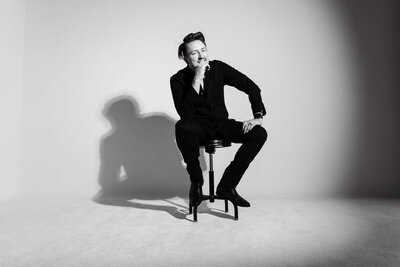

Browse by category
In the world of performance, the director gives “notes” which include specific, actionable tips for the performers.
Musings and dispatches about creativity, storytelling, and finding more meaning as a public speaker.
A podcast with storytellers, public speakers, and performers about the art and science of saying something.








"Mike helped me create the signature keynote I'd been dreaming of giving. He was so skillful, artful, creative in helping me create a #mikedropmoment."




“He should have charged me 5x as much because the VALUE I received was so astounding!”
“Working with Mike made me more compelling, more motivational, more relatable, and more myself”
WORD ON THE STREET
— Erin King, Bestselling Author & Top-Ranked Keynote Speaker
— Tiffany Lanier, Change and wellbeing keynote speaker
— Laura Gassner Otting, bestselling author and TEDx speaker


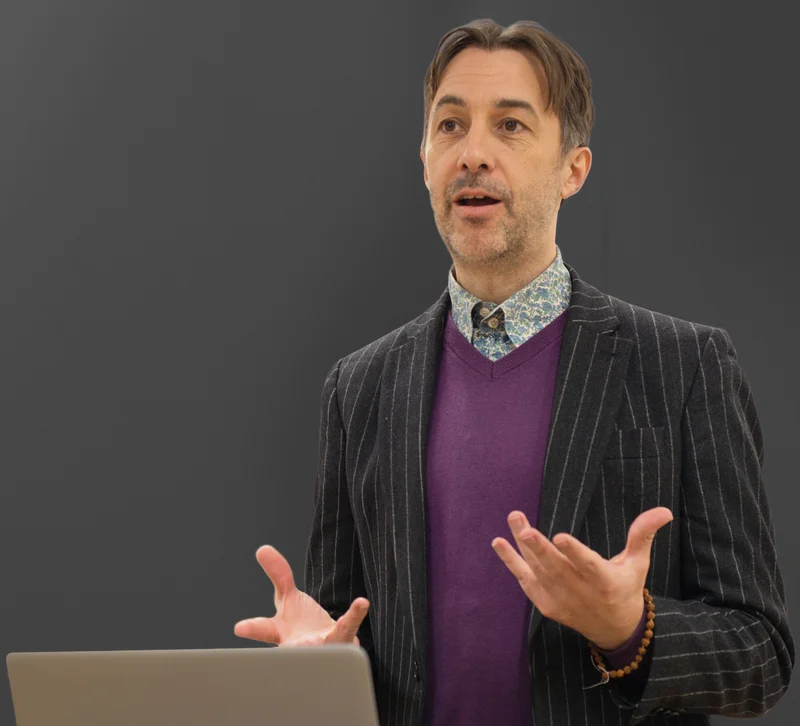





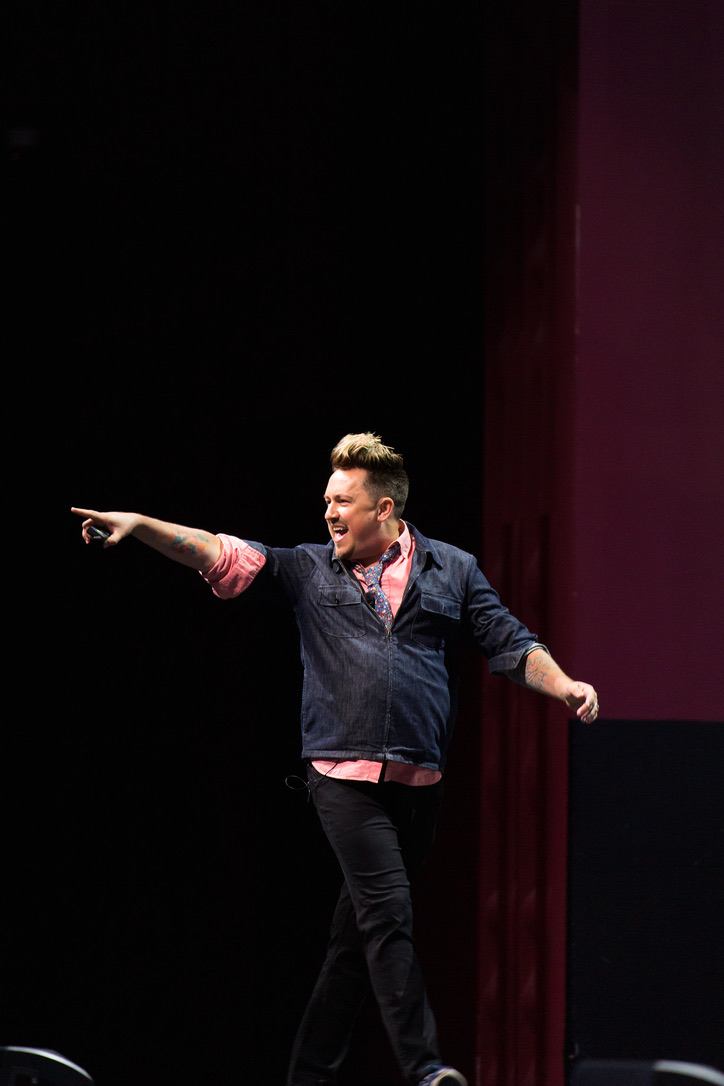
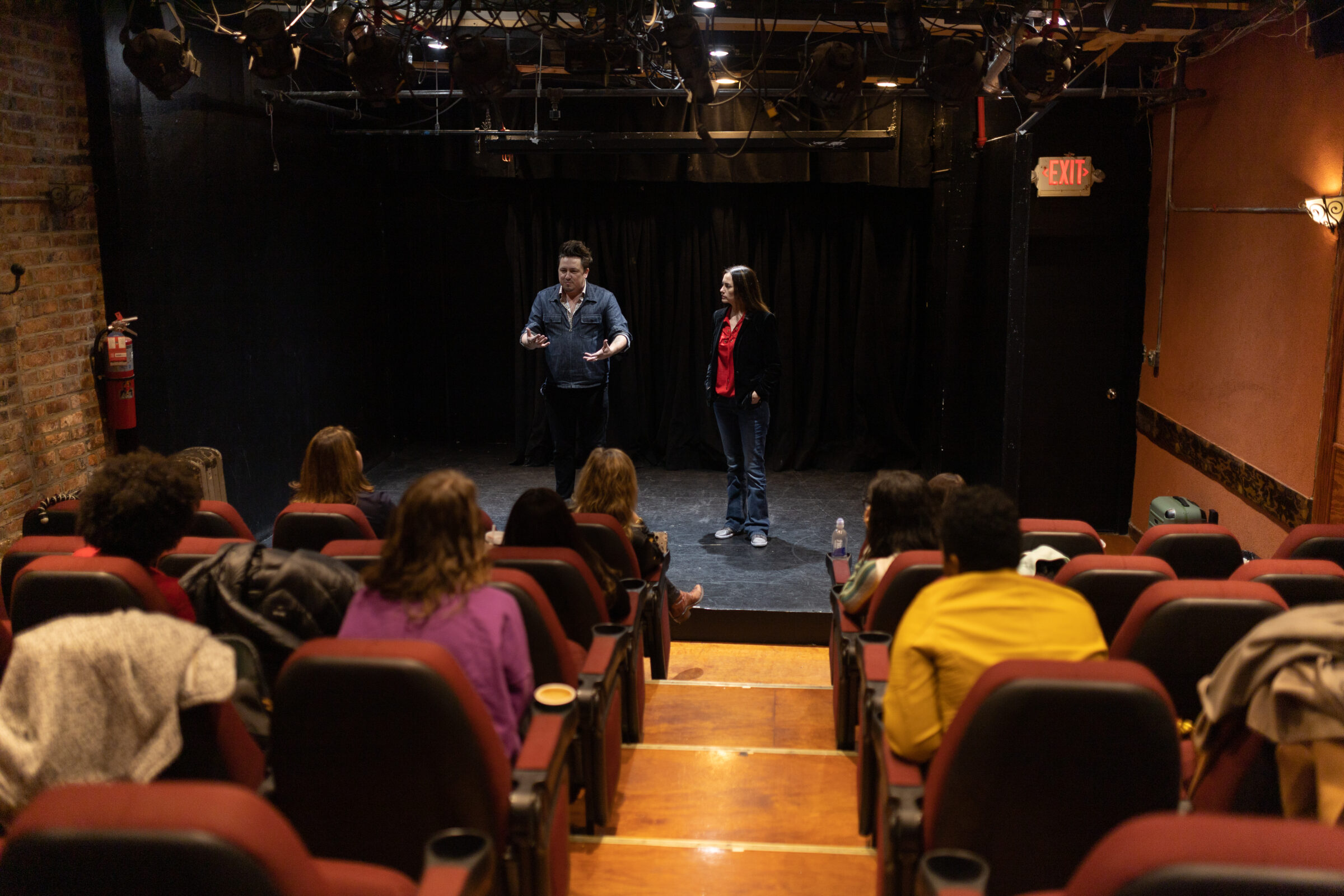
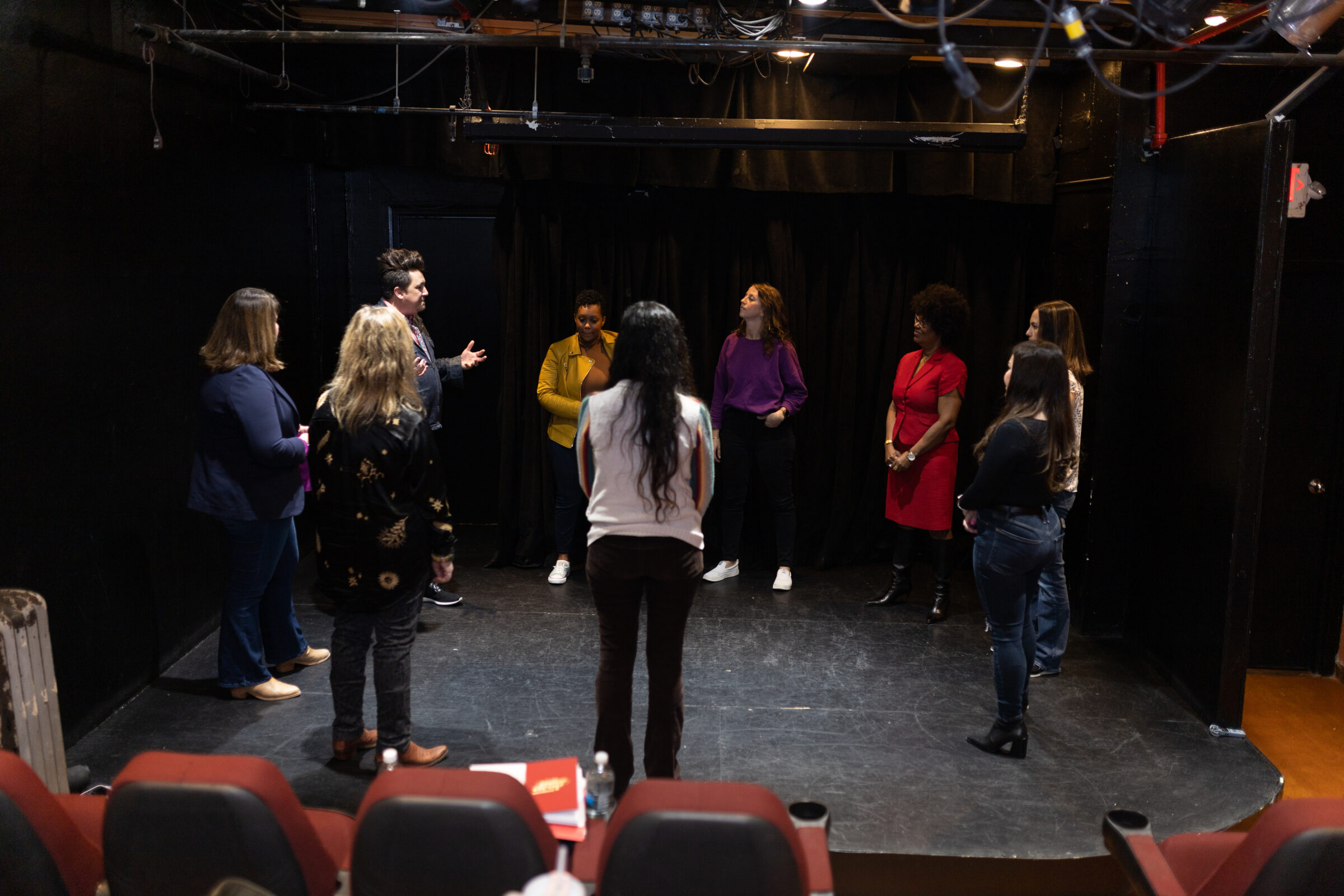




+ Show / Hide Comments
Share to: